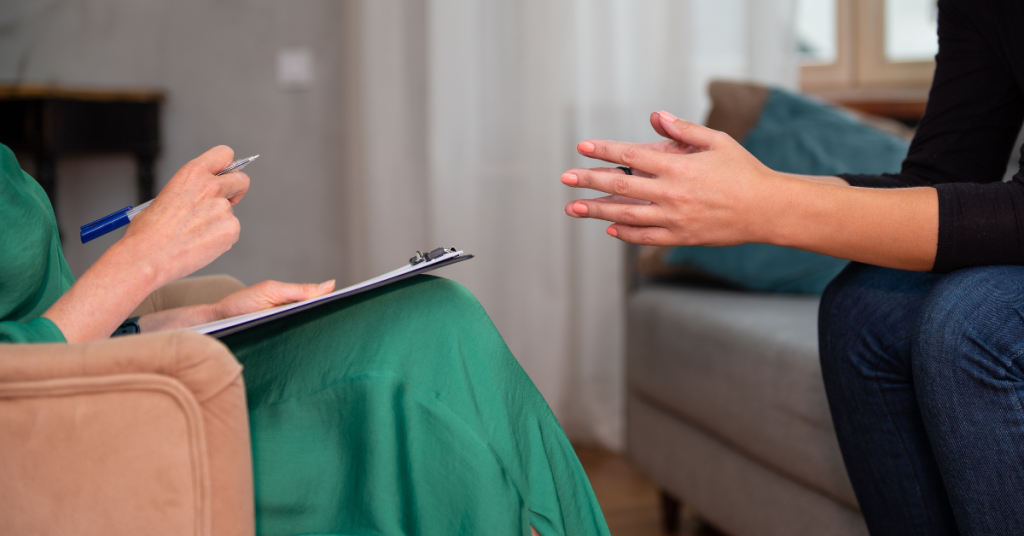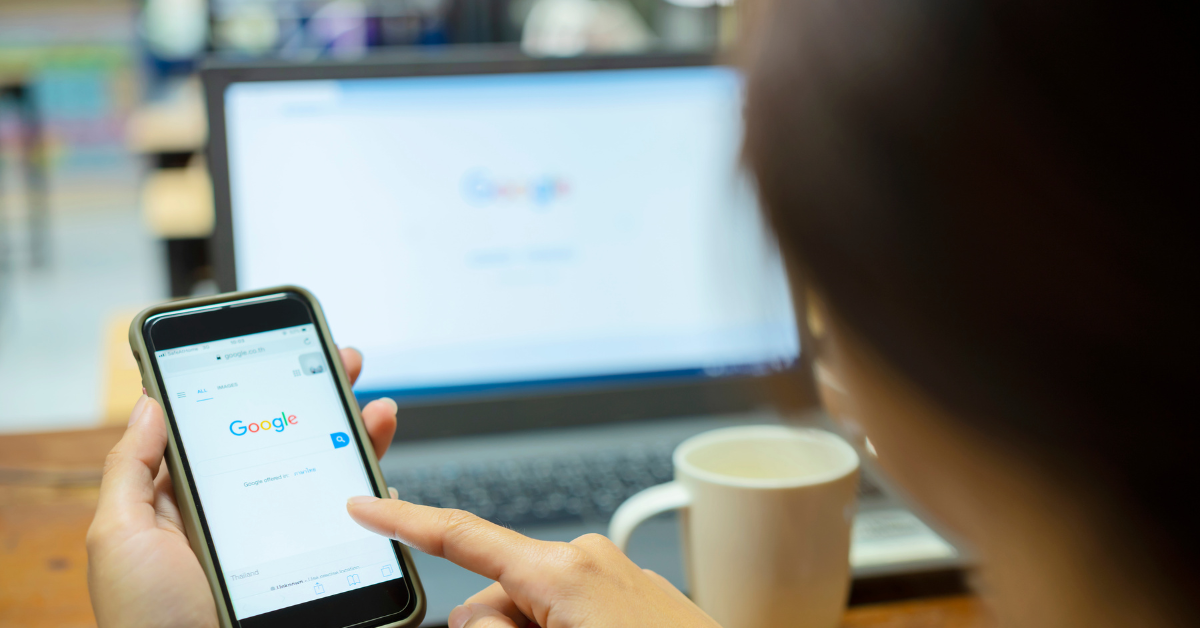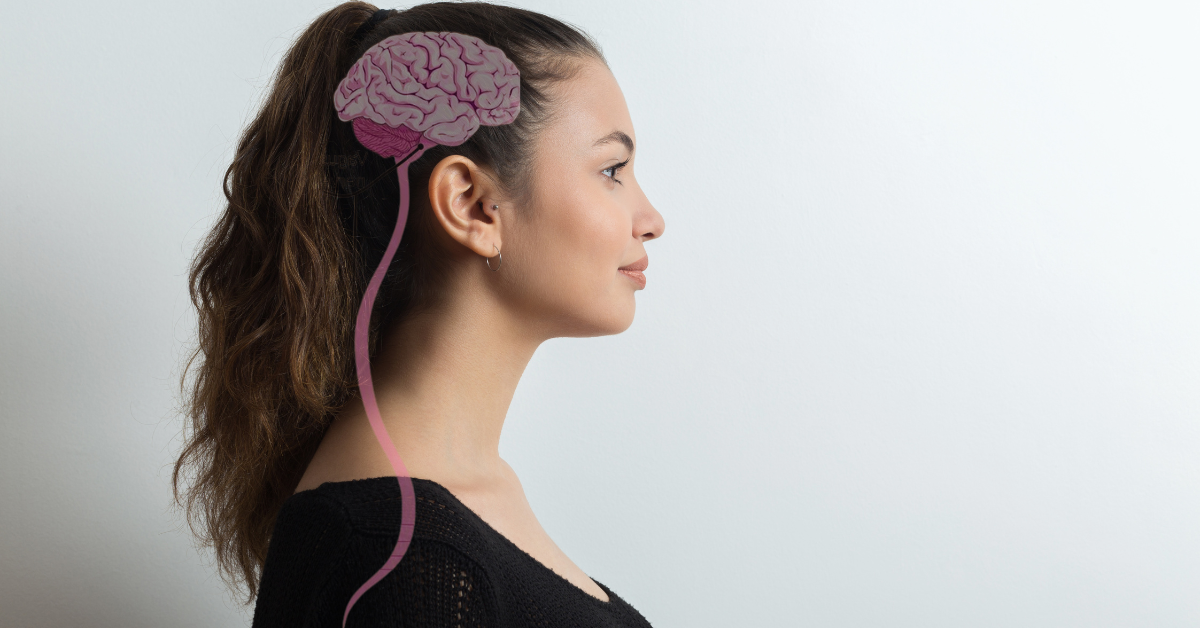130. Need More Than Weekly Therapy? Is a Therapy Retreat Right for You? with Carrie Bock, LPC-MHSP
In this episode, Carrie shares the benefits and outcomes of therapeutic retreats, how they are structured, and how to determine if a therapeutic retreat is right for you:
Episode Highlights:
- The typical structure and process of a therapeutic retreat
- The use of EMDR (Eye Movement Desensitization and Reprocessing) and EMDR 2.0 techniques to process trauma and reduce distress.
- Identifying who is a good candidate for intensive therapy and who might need more foundational work before participating in a retreat.
- Real-life examples of clients who have benefited from intensive therapy
- Tips for managing your resources when considering intensive therapy versus regular sessions.
Episode Summary:
In this episode of Christian Faith and OCD, I discuss the benefits of therapy retreats and intensive sessions, a service I’ve been offering for about a year and a half. For those who feel stuck in their healing journey or find that weekly therapy isn’t enough, a therapeutic retreat could be the answer. I walk through what these sessions look like, from setting intentions to deep trauma processing using techniques like EMDR 2.0 and parts work. These retreats allow us to dive deeper and make significant progress in a shorter amount of time.
I’ve seen incredible results with clients who have come from out of state for multi-day sessions. Whether you’re dealing with trauma, OCD, or phobias, these retreats provide the space and time to address core issues that may not surface in traditional therapy settings. We’re able to trace present challenges back to their roots and process them fully, often leading to breakthroughs that would take much longer in regular therapy.
If you’re wondering whether a therapy retreat is right for you, I encourage you to reach out for a consultation. I’ll be honest about whether this approach would be beneficial for your specific needs. Intensive sessions aren’t for everyone, but they can be life-changing for those who are ready for deep work.
Thank you for joining me today. If you found this episode insightful, please consider leaving a review on iTunes or Apple Podcasts. Your feedback helps others discover the show and take steps toward their own healing. Until next time, may you be comforted by God’s great love for you.
Explore Related Episode:
Transcript:
Welcome to Hope for Anxiety and OCD episode 130. I am your host, Carrie Bock, a licensed professional counselor in Tennessee. I am so excited that you are here with us today to talk about “How do I know if a therapeutic retreat is right for me?”
I started doing day-long sessions about a year and a half ago. Since having the podcast, and not being able to work from clients out of state, I have had people come visit me for multiple days and stay locally and come to the office. We’ve seen great results from that. I want to open that opportunity up to more people. To some of you who are listening, know that you can go online to my counseling website bythewellcounseling.com and book a consultation session. I’ll have you fill out some paperwork and we can talk through what makes sense for you in terms of moving forward. And if it doesn’t make sense for you to take the time to do a therapeutic retreat, or I don’t think that you’re going to get good results from it, I will be honest and tell you, that I don’t take people on for these types of experiences who I don’t think are going to have a good result.
Let’s talk about the structure of an intensive session or therapeutic retreat. Clients will come in in the beginning and we’ll do a mindfulness-type activity to settle. If they are a Christian, we will definitely invite the Holy Spirit into that process. It’s so powerful. The Holy Spirit knows exactly where we need to go, and what we need to work on, and if we trust him in that process, even if it doesn’t make sense on the surface, things always go better.
I also really want God to be speaking into people’s hearts through this process, dropping in truths, not just truths that they know in their head, but also that that can permeate deep down into their spirit. into their body, their heart and mind so that they can love God with everything that they have.
Then what we do is we set an intention. The intention a lot of times has already been set ahead of time. We’ll talk about that In the consultation, what is it that you hope to walk away from if we are quite successful here and have a great therapeutic experience? What do you hope to be different or what do you hope to be responding to differently in your life?
Depending on the state that the client comes in depends on where I go next. Some clients come in. And they’re feeling very hopeless, feeling like why is this going to work, I’ve done all these other things, how is this going to be any different, maybe I’m that person who’s the lost cause who just can’t get any better.
I think it’s important for us as therapists to respect whatever shows up in the room. So if hopelessness is there for a reason, if it’s there to protect this person from trying too hard again and potentially getting hurt, then I can empathetically respond to that. And we can usually move from a state of feeling hopeless to at least feeling maybe open or curious as part of the process.
Other clients come in highly anxious because they know they are going to be working on things that they’ve been avoiding. We may have to take a little bit more time to calm their nervous system a bit before we can engage in the activities, and that’s okay. Other clients come in feeling okay, comfortable with the process, ready to go, ready to get engaged and get started. But wherever a person is at on that initial first day is fine. We just work with whatever is in the therapy room, knowing that things are going to shift and change as we go through the process.
Somewhere in that first or second hour, we’re developing a resource if this hasn’t been created previously. The resource is a healthy, adult part of self that can help wounded child parts heal, It’s very significant and powerful for trauma work to get that on board. It helps our brain be able to make shifts to know that you’re an adult now, that things are different. A lot is different than when you were a kid in terms of there being more things in your control.
lessening a sense of powerlessness, while at the same time, knowing when we were children, we relied so much on adult caregivers to meet our needs. Now that we are adults, we can start to learn to meet some of those needs ourselves. And also, we can open ourselves up to allow God to pour in and meet those needs for us.
We have a total of three hours before lunch, so depending on how time flows, what comes up in the beginning? We then are moving before lunch into a treatment process where we’re looking at what memories do we need to target with EMDR. Two pathways that people can go down here. One is they bring in the memories that they know are bothering them.
But another pathway that I often see is people know, okay, for example, I can’t seem to stand up for myself, I can’t seem to set boundaries, or I can’t seem to have any confidence in my life, I want to be able to do things, but I don’t feel good about myself, I feel worthless. And they’ll tell me, I’m not sure where this comes from.
I know that I’ve had some things happen maybe in my childhood, nothing super significant, nothing that seems major, but there’s just something there that I can’t seem to shake and I’m not sure where it comes from. We will take that presenting issue, looking at how it impacts that person in their relationships, in their work, in their social settings, in at home, at school, and we’ll trace that backwards. So there’s a treatment plan process that I do with people. We will go back and we are just allowing that, getting them into that vein of the nervous system through some questioning, allowing them to sit with what’s happening in their body, whatever’s coming up.
If we’re following that nervous system, then God will show us those next places that the person needs to go or bring those memories to mind that come up related to the present issue. It’s important to note that I never dig up stuff from the past arbitrarily. I’m specifically looking for things that are tied to the present issue that are keeping the person stuck in the present right now.
We’re not going on a fishing expedition to see whatever painful stuff we can dig up. No, what we’re doing is saying what’s here right now and what space in the past is stuck and is keeping you from being able to do the thing that you want to do in the present. This is helpful whether people have had a lot of trauma or a little trauma.
If you’ve had a lot of trauma, you may not know what specific things you need to target that are connected to this present issue. You know that targeting everything is going to feel like too much, and we don’t want to do that. We’re not trying to overwhelm your system here. So we have three hours in the morning.
We take an hour’s lunch break in the middle of the day, usually around noon. When we come back at one, we are usually ready to start getting into that trauma processing with EMDR. I found a couple of things that move EMDR along a little bit faster for my client. One of those things is EMDR 2. 0 involves working memory taxation, bringing that memory vividly into the space of the working memory, trying to hold it there while at the same time being distracted by the therapist giving you different tasks to do. It allows your brain to chew that memory up differently and reduce distress a lot quicker.
The other thing that helps people move along in the EMDR process and not get stuck or start looping has been integrating parts work. This allows people to process very painful things with much less distress. Both of these, the EMDR 2.0 and the parts work. It used to be that I would find people were very overwhelmed emotionally when they would tap into these memories. Since I’ve been using EMDR 2. 0 and parts work, people have been able to process without having the intense emotional re-experiencing. This is probably really good news if some of you have done EMDR in the past and you know how challenging it can be and how emotionally draining it can be, but it doesn’t have to be. I’m coming from a space now of doing EMDR for over 10 years, going through the entire process to become the highest level of training you can receive, which is an EMDR consultant.
I have worked my way around EMDR forwards and backwards. I’ve had people tell me, I haven’t been able to do EMDR in the past with a previous therapist or it didn’t do anything for me. They’ve still been able to have good results. There are some times when we go a little bit heavier on parts work because we need to focus on messaging that someone received and we may process through some negative messaging received from caregivers, but we can still add a mode of bilateral stimulation to that.
There are so many directions that you can go in a day-long session when you have the time. For example, with people dealing with phobias, we can look at processing that with something called a future template, similar to imaginal exposure. You’re imagining how you would like to respond to that situation in the future and processing and working through the body sensations that come up related to that feared experience. Some things are easier to expose yourself to in an imaginal sense versus in a real-life context. For example, if someone is afraid to get in an MRI machine, what we can do is have them imagine that process.
I could also play sounds that the MRI is going to sound like. We can look up lots of things on YouTube, and look at pictures. Whatever is appropriate for the person or whatever they’re feeling comfortable with, we can go down some different directions in regard to phobias specifically. We can process obsessions in terms of triggers to obsessions, that feared worst-case scenario outcome, having people sit with what if that did happen and process through the body sensations, emotions related to that, the feared scenarios.
We can have you practice saying things that you want to say out loud, looking at tone of voice, and assertive communication. These obviously are just a couple of examples, but I hope it’s giving you an idea of how much flexibility you have and how many different directions we can go down with those longer time periods and timeframes.
I often find multiple days are helpful for people who have more than one diagnosis. Examples of if they would identify that they have significant past trauma, and PTSD-like symptoms, while also having OCD. I would consider these clients to be some of my favorite to work with, really clearing through the trauma and then helping them with the skills to be able to manage the OCD in the present.
I have found that trauma certainly exacerbates OCD symptoms. Oftentimes, until we clear up that trauma from the past, we don’t know how much that is going to help clear up the OCD or bring it down to a level that is more manageable, where the person can live with it in their day to day life and feel confident in being able to have the skills to manage the obsessions when they come up.
I have named some of them, but let’s talk about what issues are good to cover in an intensive. I’ve helped people with a variety of things. Recent event trauma, traumatic grief and loss, so that if you work through the trauma, then the grief process will be able to move a little bit easier, a little more smoothly. We are not trying to take away anyone’s grief or sadness. We’re just trying to remove the traumatic pieces that keep them from going through that grief process or keeping them stuck.
Helping people with phobias, whether that’s flying, doctors, dentists, or anything medical procedure. I can identify and relate because I’ve had negative interactions with medical professionals. Hospitalizations as a child impacted me later in life when I faced other medical issues or uncertainties. Lack of confidence is commonly something that people seek more intensive or therapeutic retreat help for because it’s such a complex issue. And that confidence can interfere with someone being able to date.
It could be interfering with them getting a job promotion or interfering with their ability to set boundaries. It could be that you have an unhealthy family member who keeps roping you into some of the same unhealthy patterns, and you’re constantly getting triggered by that person while at the same time wanting to maintain a relationship with them.
We work through, what that looks like to heal from the past hurt from this relationship. What does it look like to move forward and have a healthier relationship with someone? You can only control that health from your end. You can’t control the entire relationship’s health. But I’ve seen people be more at peace in stepping back from relationships a little bit or engaging in a different way than they have before.
I find panic attacks to be something that we can target with EMDR processing. The first panic attack, the worst panic attack, how you’d like to be able to go out and not have the fear of having another panic attack. If you have any other issues going on that you think might be appropriate for a therapeutic intensive, certainly hit me up on the contact page.
Let me know what your thoughts are, and a little bit of what you’re trying to work through, and we can certainly always schedule a consultation and talk that through to see if this modality is right for you. Who is not appropriate for a therapeutic intensive if you’re in active addiction? Right now, you’re probably going to need to seek help of some substance abuse treatment.
Obviously, there may be other mental health concerns going on. You may want to find a co-occurring treatment facility where they can treat the substance abuse and the mental health. Eating disorders can be super challenging and you may need some more intensive treatment. If you’re at a level where you need to seek residential treatment, a therapeutic retreat or intensive may not be right for you. That’s something to keep in mind.
Those I’ve found that do the best with this type of therapeutic setting have a level of openness towards the healing process. They believe that it’s possible. They’ve tried other things in the past. They have a certain baseline level of self-awareness. I don’t take people on for these types of experiences that don’t have a connection to their emotions, that don’t have a connection to their body that aren’t sure how to give feedback or express what they’re thinking or feeling. Those types of individuals need a lot more baseline work of mindfulness, of tuning into their own experience, of developing a little bit more self-awareness. And then they might be ready at a later point for a more therapeutic retreat-intensive type setting.
I want to talk to you about other considerations you may have when thinking about this type of therapy. We have three valuable resources. Time, Money and mental energy and depending on how you want to split those resources up in terms of receiving therapy That’s going to help guide your process. Do you have the time to go to weekly or every other week of therapy?
There have been times in my life when I was looking for A grief support group. I was looking at being involved in something like that and I kept running into not being able to find something that was what I was looking for or that would fit my schedule appropriately. I had so much going on with having a very young child at that point in time because I couldn’t find something that fit, and I knew I really did need some type of more grief and loss work to happen, I chose to go to a day-long grief retreat myself. Let me tell you, it was absolutely incredible. I talked about it in a previous episode in terms of my grief and loss journey.
I was seeing a therapist regularly, but something still felt a little bit like it was missing. I had such a great awareness through the process of the activities at this grief retreat that I thought I came there for one purpose, and then by the time I left, I realized that there was something else inside that I needed to grieve that I hadn’t yet. That was what I ended up working on. It was an incredible process that I hadn’t recognized or realized through going to therapy on a regular basis.
In today’s society, many people are busy. I talk to people who are literally running seven days a week and they feel like they cannot add one more thing to their schedule, yet they know they have things they need to work on. Maybe they’ve tried to go to weekly therapy and they end up canceling because the kid gets sick or because work then interferes and says, you have to be over here. They just can’t seem to get that consistent rhythm or momentum of weekly therapy so you have to take time into consideration. You also may have something to work through that has a time deadline.
For example, if you’re pregnant and you’re trying to recover from your first traumatic birth, you’re time-limited on how long you have to receive therapy before you give birth again if you’re already pregnant. Maybe you tell your spouse, yes, we’re finally going to take that trip that we’ve always wanted to take for our 10th anniversary across the ocean, but you’re afraid to fly. Now you know you’ve been avoiding dealing with it, but hey, I need to work on my flight anxiety before I get on the plane. We talked about time as one of our resources.
Now let’s talk about mental energy. Usually, when I tell friends or family that I do day-long sessions with people, the initial response is, “Whoa! That’s a lot of therapy.” That sounds like a lot. I don’t know if you’ve ever seen that thing on social media that’s like, Choose your heart. Staying married is hard. Divorce is hard. Choose your hard. This is one of those, I would say, choose your hard because I know people that come into weekly therapy that say, Man, it’s hard to unpack this stuff and pack it back up and then go be with my family or it’s hard to unpack something and then feeling like I’m just starting to get hit the emotional nerve or I’m just starting to get going on the processing then the 50 minutes are up, and unfortunately, your brain is going to continue to chew on things. That’s just what it does. It’s trying to find resolution.
When you have a longer therapy session, you’re giving your brain the gift of time. Yes, six hours of therapy in a day can be a lot. I’m not going to lie to you or sugarcoat that. You may want to take a nice, long, happy nap afterwards. However, living with pain day after day is also exhausting. Let’s talk for a moment about money.
On the surface, a therapeutic retreat is more expensive. However, when you remember that we’re actually saving time by condensing the process, I believe that people save money in the long term. I remember one client that I did a one-day session with, and She had so many memories that she just needed to process through and unpack that was holding her back in her day-to-day life, things that she couldn’t get off her mind.
It was a very rare sort of intensive in a lot of ways because the targets she essentially picked and knew what things were bothering her. A lot of times we have to go back and do a process and dig for those, but she knew what she needed to process. I remember we just went through the day and I was like, okay, what’s next? She would process it and go to the next memory. Okay, what’s next? At the end of that session, I told her this would have taken you a year in therapy to get through all of these memories. I honestly believe that. But her brain was just so ready and her nervous system, she wanted that healing. She was open to it and we just were able to go through it so that she didn’t have to keep carrying around the pain of those memories over and over and over again.
I can tell you from the therapist’s perspective, I enjoy the longer sessions because we start to see a thread running through very quickly. In all of these different memories, you experienced this, and that is the piece that has followed you around for your whole life. Today is the day that God wants to break that chain for you. Today is the day that you can say, I don’t have to live. Under that lie anymore, I don’t have to live with that limiting belief. It stops today. There is not anything else that lights me on fire more than that, guys. It’s so incredible to see the work that God has done in people’s lives over these longer sessions.
I know for some of you, this episode really landed and you resonated with what I was saying. If that’s you, I just really encourage you to reach out on bythewellcounseling.com and click on the contact form. I would love to get in touch with you. Or you can go on there and schedule a consultation and we’ll talk more about if this is right for you.
Do you want to be the first to know what’s happening on the podcast? podcast. Join our email list at hopeforanxietyandocd.com. We have got some free downloads on there, and you have to actually click the download from your email to sign up for the list. So make sure you take that one extra step.
Thanks so much for listening and I’ll be back next week.
Hope for Anxiety and OCD is a production of By the Well Counseling. Our show is hosted by me, Carrie Bock, a licensed Professional Counselor in Tennessee. Opinions given by our guests are their own and do not necessarily reflect the views of myself or By the Well Counseling. Our original music is by Brandon Mangrum. Until next time, may you be comforted by God’s great love for you.









